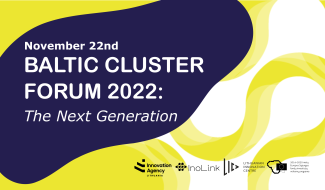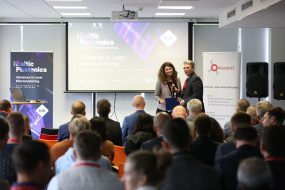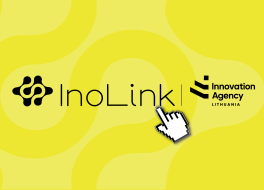Success story: experimental project of the STC cluster opens doors to new markets and clients

The Smart Technology Cluster (SCT) formed six years ago serves as proof that clustering offers tangible added value. Evaldas Paliliūnas, the Head of Sales of the member company Aedilis, spoke about how the joint project implemented by the cluster has not only saved the hospital’s funds, but also inspired for new profitable business ideas.
Roots of success in Varėna Hospital
“Three years ago, when working on the issues of smart solutions for energy accounting and cooperation opportunities, we came up with an idea to join our efforts and implement the smart accounting system in the public sector at own expenses,” revealed Mr Paliliūnas.
The members of the cluster began implementation of the project from sending out 50 invitations to local municipalities. The municipalities were asked to present a list of buildings with particularly high energy consumption. The members of the cluster were surprised at the initiative of the municipal
governments to use the opportunity to receive a free service presenting as many as 90 proposals. It was a challenging task to select just one candidate from that huge file.
“It was decided that the building must provide public services. Therefore, the kindergartens and hospitals were visited first. The choice that fell on Varėna Hospital was greatly influenced by an exceptional motivation of this municipality and multi-sided support,” described he the start of the project.
All members to contribute
According to Rolandas Juraitis, the coordinator of the Smart Technology Cluster, all members of the cluster used their competences to contribute to the implementation of the smart energy accounting system at Varėna Hospital. We installed the smart monitoring system for hot and cold water, air and indoor temperature metering and an electricity consumption monitoring system.
The result achieved was the platform operating in real-time and displaying a cross-cutting analysis of all the data. “The data received is the first step. The next and more important step is the ability to make expedient analysis and efficiently use these data,” added Mr Juraitis, emphasising the significant contribution of the specialists.
Upon the analysis of the existing situation at Varėna Hospital, the interdisciplinary specialist team of the cluster quickly pinpointed the problematic areas and proposed to the hospital a plan for saving EUR 5,000 annually on energy expenses without additional investments. The team working on the project had calculated that by implementing this system any public institution would be able to easily reduce energy consumption by 8 to 10 per cent.
New ideas, new markets, new clients
Aedilis UAB, a member of the cluster, adapted the CloudIndustries.eu metering system of own development for the project of Varėna Hospital. Prior to this project the system was oriented and used for monitoring and management of renewable energy stations. The pilot project of Varėna Hospital revealed a huge potential of the company if it were to direct the available know-how into a route, i.e. focus on the development of smart metering systems.
“The pilot project of the cluster had an influence on changing its business direction. We started exploring new markets and clients. At the moment Aedilis has completed development of the smart metering system, which is now being used by such organisations as Nordic Sugar Plant in Kėdainiai, Augus ir Ko, Sicor Biotech, LIDL, etc.,” said happily Mr Paliliūnas, the Head of Sales. According to him, this project has already created three new jobs.
The company together with its partners started development on an international scale, establishing a branch in Singapore, which will manage adaptation and sale of products in Asia. Aedilis is also proud of the feedback received internationally. This year the company became the winner in the nomination Towards Industrial Revolution 4.0 at the German and Lithuanian business awards.
“Even though it is too early for the assessment of the contribution and impact on sales of this product, the export of Aedilio services is consistently increasing. In 2015, the export volumes increased by 40 % and by 10 % in 2016,” commented Mr Paliliūnas on the results.
He also mentioned that Aedilis was not the only member of the cluster who received direct benefits from the pilot project: “Our colleagues and partners at EICenergy UAB have designed and are currently offering mobile monitoring services to the Lithuanian manufacturing companies, while UAB ENSO Projects was able to advance its modular hybrid power plants.”
Positive atmosphere of cooperation in the Smart Technology Cluster
The Smart Technology Cluster was formed at own initiative in 2011. Since establishment, its major focus has been on cooperation: regular meetings and projects conforming to the needs of the members. Currently the cluster unites 10 independent enterprises and scientific institutions cooperating in the field of technologies. Together they strive to create solutions generating higher value in different areas involving smart technologies: from smart cities to smart homes.
The STC is currently one of the 14 clusters reared by the Promotion and Development of Innovation Networking (InoLink) project. InoLink is the project under the EU measure Inogeb LT coordinated by the Agency for Science, Innovation and Technology (MITA) implemented in cooperation with the Lithuanian Innovation Centre and financed by the European Regional Development Fund. The project was launched in July 2016 with the aim to stimulate integration of enterprises into clusters, to increase maturity of clusters, and to promote growth and international cooperation.



